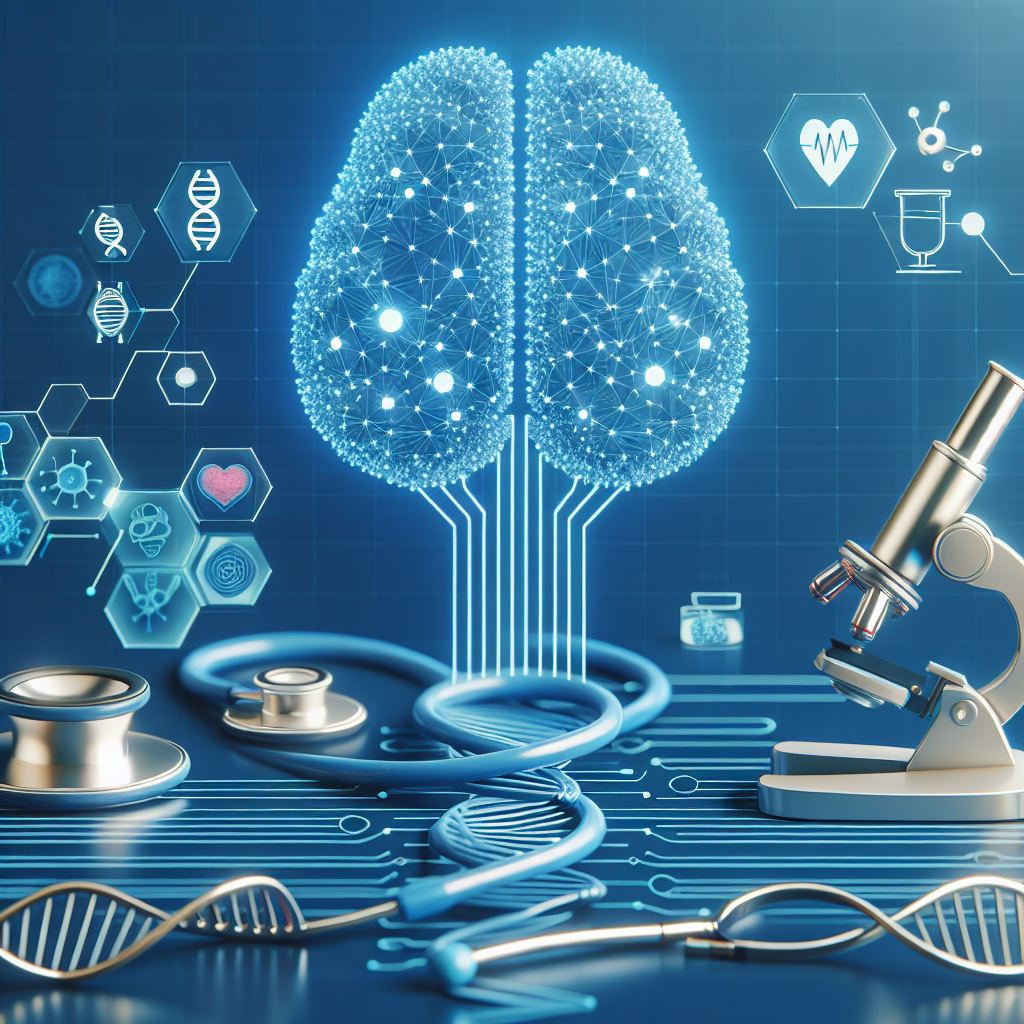Artificial Intelligence (AI) has been making significant strides in the field of healthcare, particularly in the area of diagnosing diseases. With the ability to analyze vast amounts of data and detect patterns that may not be immediately apparent to human doctors, AI has the potential to revolutionize the way diseases are diagnosed and treated.
One of the key advantages of AI in diagnosing diseases is its ability to process and analyze large amounts of medical data quickly and accurately. This includes data from medical images, such as X-rays, MRIs, and CT scans, as well as information from electronic health records, lab tests, and other sources. By analyzing this data, AI algorithms can identify patterns and anomalies that may indicate the presence of a disease or condition.
For example, in the field of radiology, AI algorithms have been developed to assist radiologists in interpreting medical images. These algorithms can help detect early signs of diseases such as cancer, stroke, and heart disease, allowing for earlier and more accurate diagnosis. In some cases, AI has been shown to outperform human radiologists in identifying abnormalities in medical images.
AI is also being used to analyze genetic data to identify individuals at risk for genetic diseases or to predict how a patient may respond to a particular treatment. By analyzing a patient’s genetic information, AI algorithms can help tailor treatment plans to individual patients, leading to more personalized and effective care.
In addition to diagnosing diseases, AI has the potential to improve the efficiency and accuracy of medical diagnosis in a number of ways. For example, AI-powered chatbots and virtual assistants can help patients navigate the healthcare system, answer questions about symptoms, and provide information on common conditions. These tools can help patients make informed decisions about their health and when to seek medical attention.
AI can also assist healthcare providers in making accurate and timely diagnoses by analyzing patient data and medical records. By flagging potential issues or anomalies in a patient’s medical history, AI algorithms can help doctors make more informed decisions about a patient’s care. This can lead to faster diagnosis, more targeted treatments, and better outcomes for patients.
Despite the many benefits of AI in diagnosing diseases, there are also challenges and limitations to consider. For example, AI algorithms are only as good as the data they are trained on. If the data used to train an AI algorithm is biased or incomplete, the algorithm may not be accurate or reliable in diagnosing diseases. Additionally, there are concerns about the transparency and interpretability of AI algorithms, as they can be complex and difficult to understand.
Another challenge is the potential for AI to replace human doctors in diagnosing diseases. While AI can assist doctors in making more accurate diagnoses, it is not a substitute for the expertise and experience of a human healthcare provider. It is important for AI to be used as a tool to complement and enhance the work of healthcare professionals, rather than replace them.
In conclusion, AI has the potential to play a significant role in diagnosing diseases and improving patient care. By analyzing large amounts of data and detecting patterns that may not be immediately apparent to human doctors, AI can help identify diseases earlier, tailor treatment plans to individual patients, and improve the efficiency and accuracy of medical diagnosis. However, there are challenges and limitations to consider, and it is important for AI to be used ethically and responsibly in healthcare settings.
FAQs:
Q: How accurate is AI in diagnosing diseases compared to human doctors?
A: AI has been shown to be very accurate in diagnosing diseases in some cases, outperforming human doctors in detecting abnormalities in medical images. However, AI is only as good as the data it is trained on, and there are limitations to consider.
Q: Can AI replace human doctors in diagnosing diseases?
A: While AI can assist doctors in making more accurate diagnoses, it is not a substitute for the expertise and experience of a human healthcare provider. AI should be used as a tool to complement and enhance the work of healthcare professionals.
Q: What are some of the challenges of using AI in diagnosing diseases?
A: Some of the challenges of using AI in diagnosing diseases include biased or incomplete data, concerns about transparency and interpretability, and the potential for AI to replace human doctors.
Q: How can patients benefit from AI in diagnosing diseases?
A: Patients can benefit from AI in diagnosing diseases by receiving earlier and more accurate diagnoses, more personalized treatment plans, and improved efficiency and accuracy in medical diagnosis.

